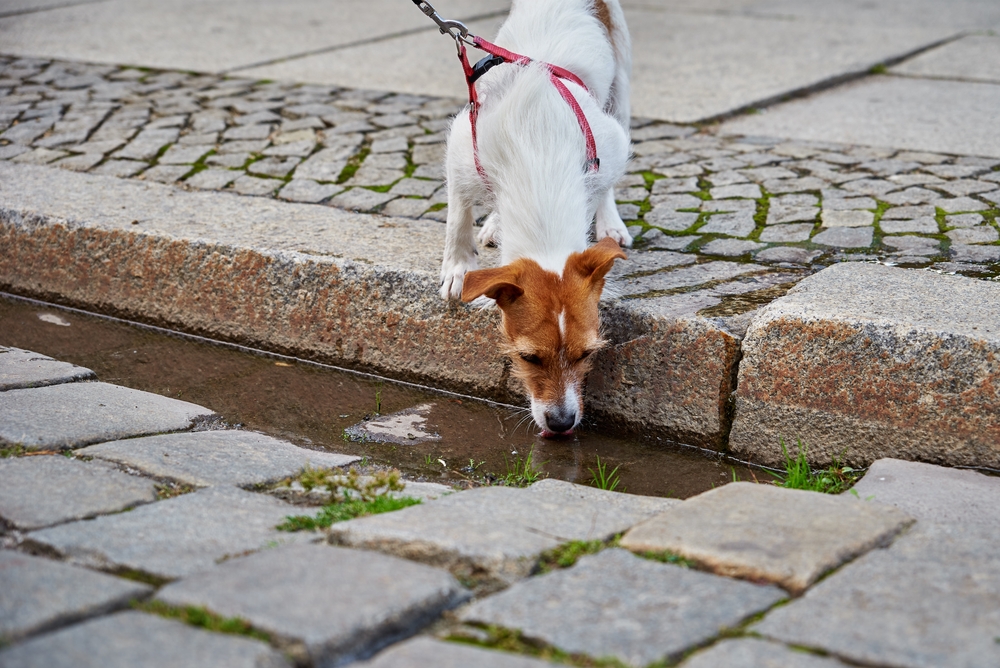
What You Need to Know About Giardia in Dogs
Giardia is a parasitic organism that can cause a host of gastrointestinal (GI) problems for your canine companion, including severe, foul-smelling diarrhea. Dogs of all ages, breeds, and sizes can contract giardiasis, which is extremely contagious and widespread in places where many dogs are together such as shelters and boarding facilities. Learn about Giardia and how our Harbor Pines Veterinary Center team can help prevent your canine companion from contracting this parasitic infection
Understanding Giardia in dogs
Giardia is a microscopic, single-celled parasite that lurks in feces-contaminated soil, food, and water. The parasite exists in two forms.
- Trophozoites — A trophozoite is the active form inside the host.
- Cysts — A cyst is the hard-shelled dormant form that a dog expels in their feces. Giarda cysts can survive in the environment for several months.
Giardiasis, the disease a Giardia infection causes, can lead to acute or chronic diarrhea, and if left untreated, can cause significant nutrient malabsorption and weight loss. Only some dogs with Giardia exhibit infection signs but they all infected dogs are able to transmit the disease.
Determining your dog’s risk for contracting Giardia
Understanding how your dog may contract Giardia can help you take precautions to reduce their risk. A dog can contract giardiasis in numerous ways, including:
- Contaminated water — One of the most common ways dogs contract Giardia is by drinking water contaminated with Giardia cysts such as standing water in puddles, ponds, or communal water bowls, which are often available in dog parks. Dogs that enjoy swimming are also at risk, as they may accidentally swallow contaminated water.
- Infected feces — Dogs, especially curious puppies, often sniff or taste objects in their environment, including feces. A dog who comes into contact with an infected animal’s feces can ingest Giardia cysts and contract the disease.
- Contaminated environments — Giardia cysts can survive in cool and damp environments for several months. Your canine companion can pick up the cysts from contaminated grass, soil, or surfaces, and then ingest them while grooming.
- Contact with infected animals — Giardia can spread rapidly from one animal to another, especially in a multipet household or a place where many dogs congregate such as a boarding kennel, shelter, and dog park.
Identifying Giardia signs in dogs
Recognizing Giardia’s signs can be challenging, and many infected dogs will exhibit no signs. However, a young dog or one who has a weakened immune system is likely to display illness signs. Dogs’ most common giardiasis signs include:
- Acute diarrhea
- Soft, poorly formed, pale stool
- Malodorous stool
- Mucus in the stool
- Fatty-appearing stool
- Abdominal discomfort
Timely Giardia detection and treatment are vital to prevent severe complications such as chronic diarrhea and malnutrition. Humans can contract Giardia, and by having your pooch’s infection detected and treated promptly, you also help protect your family’s health. Many other GI conditions cause signs similar to those of Giardia, and the best way for your dog’s condition to be definitively diagnosed is to have our Harbor Pines Veterinary Center team perform a fecal exam.
Treating Giardia in dogs
While giardiasis can cause uncomfortable signs, Giardia is typically responsive to treatment. Diagnosis is confirmed through stool samples, however, because Giardia cysts shed intermittently, they may not be present in each of your dog’s stool samples. Our team will likely test multiple samples of your pooch’s stool over several days to be able to make an accurate diagnosis. Once a Giardia infection is confirmed, treatment may include:
- Medication —Medication is necessary to kill the parasite. Your veterinarian will prescribe an antibiotic and/or antiparasitic medication. You must ensure your affected pooch completes the full medication course to eliminate the parasite completely.
- Probiotics — Probiotics can supplement your dog’s medication to support their gut health and ease symptoms.
- Rehydration therapy — If your pooch is dehydrated as a result of diarrhea, rehydration therapy may be necessary.
Preventing reinfection in dogs
Giardia cysts can survive in the environment for several weeks to months, putting your dog at risk of reinfection. To reduce your pooch’s reinfection risk during Giardia treatment, follow these tips:
- Bathe your dog regularly — Bathe your dog regularly during and after treatment to remove any cysts from their fur, especially around their hind end.
- Clean and disinfect — Regularly clean and disinfect your dog’s bedding, bowls, and toys.
- Dispose of your dog’s waste promptly — To limit parasites’ spread in the environment, immediately clean up after your dog, and dispose of their fecal waste appropriately.
- Practice good hygiene — Wash your hands regularly, especially after handling your dog or cleaning up their waste.
Reducing your dog’s infection risk
Giardia are ubiquitous, and this infectious disease can cause your dog severe GI upset. Nevertheless, you can reduce your pooch’s Giardia risk by following these tips:
- Avoid contaminated water — Before leaving the house with your dog, pack fresh, clean water. When out, discourage your canine companion from drinking out of puddles, streams, or other potentially contaminated water sources.
- Socialize safely — Keep your pooch away from areas in which dogs congregate, as Giardia can spread rapidly in such environments. If you do frequent these places, monitor your dog and discourage them from drinking communal water, or sniffing or eating feces.
- Schedule regular exams — Regular veterinary examinations, including fecal tests, are critical giardiasis preventive measures, especially for dogs who have a high risk of contracting the disease such as puppies, seniors, or dogs who live in a multipet household or attend doggy daycare.
If your four-legged friend exhibits Giardia signs, contact our Harbor Pines Veterinary Center team, so we can diagnose their GI upset’s cause and provide them with appropriate treatment.

